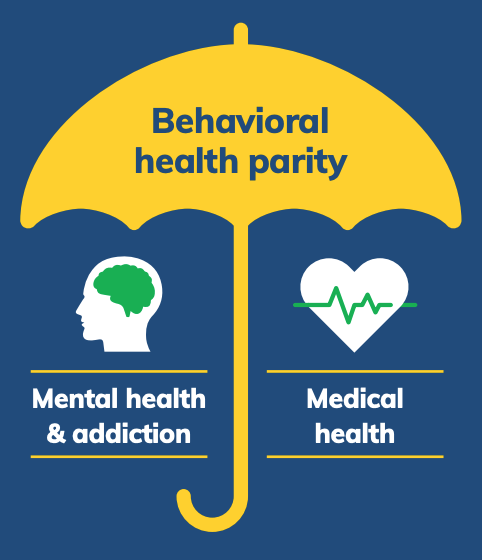Department heads across state agencies began outlining their spending priorities this week in joint budgetary hearings hosted by the Georgia Senate and General Assembly. During the hearings, department heads broke down…
Blog ()
- Home
- >
- Author: Administrator
- >
- Page 4
Author: Administrator
Legislative update: Week 3
| The GHF team loves bringing you these weekly legislative updates, and you have told us that you enjoy reading them! Our team works hard to deliver this service to you in a complete and accurate way every week of Georgia’s legislative session. If you rely on these updates to keep you connected to the health happenings under the Gold Dome, please consider supporting our work with a donation today. Thank you very much! |
In this week’s update:

- Governor Kemp’s State of the State address
- Legislation GHF is keeping up with!
- The General Assembly 2023 calendar
- Advocacy events for your calendar
- GHF’s got you covered this session!
GOVERNOR KEMP TALKS HEALTH CAREIN STATE OF THE STATE ADDRESS
Governor Kemp addresses legislators in the State of State address

On Wednesday, Governor Kemp addressed the General Assembly in his annual State of the State address. Per tradition, he used the opportunity to point to important items in his proposed budget and lay out his priorities for 2023. While much of the speech was focused on addressing crime and public safety, he did devote a portion to health care.
Towards the end of his address, Governor Kemp promoted his Pathways to Coverage program (aka “Pathways”), which is a partial Medicaid expansion. He confirmed that the program will begin July 1, 2023. Georgians between the age of 19-64 with incomes at or below the poverty level will be eligible to enroll in Medicaid if they meet stringent work and premium requirements. According to the Governor’s office, 345,000 Georgians could qualify for coverage under Pathways, but estimates by his own Department of Community Health say less than 90,000 people will gain coverage.
Gov. Kemp also described the improvements that Georgia has seen in the Affordable Care Act (ACA) marketplace over the last several years. Since 2019, the number of Georgians enrolled in ACA coverage has more than doubled and the choice of insurance companies has expanded from four to ten. These successes are the result of several factors: the additional financial help approved by Congress in 2019 and 2022 to lower premiums for ACA consumers; the U.S. Supreme Court’s 2021 decision to uphold the ACA for the third time; insurers’ subsequent confidence that the ACA would remain the law of the land; and Georgia’s reinsurance program to lower premiums (and re-assure insurers) starting in 2022.
(more…)
LEGISLATIVE UPDATE: WEEK 2

The 2023 legislative session has begun
The Georgia General Assembly convened Monday, Jan. 9th to officially kick off the 40-day legislative session.
The following day, as Georgians celebrated UGA’s national football championship win, GHF held Health Care Unscrambled 2023 and released our 2023-2024 policy priorities. Thank you to those who attended HCU! To revisit HCU 2023 or see what you missed, check out our recap and materials here.
The General Assembly reconvened Wednesday through Friday, completing the first four days of the session. Days 1-4 sped by quickly. Members were sworn in and legislative leaders hammered out the schedule for this year’s session which you can access here. (It’s rare–and very helpful!–for the full calendar to be set so early in session.) Despite being new in their roles, Lt. Gov. Burt Jones and Speaker Burns wasted no time in putting their stamps on the Senate and House respectively as they re-shaped committees and re-assigned committee leaders. For more information about the new committees and committee leaders, scroll down to New Leaders, New Committees.
On Friday, January 13th, Governor Kemp released his proposals for the current state budget (FY 2023 Amended) and next year’s budget (FY 2024 General). We featured some highlights for you below.
Last week began with Martin Luther King Jr. Day and continued as “budget week”. House and Senate Appropriations Committee members held joint hearings during which state agency leaders presented their budget requests and reviewed agency spending.
The General Assembly will reconvene today, Jan. 23rd for the fifth official day of legislative session.
(more…)In July 2022, GHF’s Board of Directors and staff launched our 2022-2026 strategic plan–an ambitious blueprint for our next four years as an organization. Guided by this living document, GHF will deepen our focus on health equity; champion community-led change; build a healthy, resilient organization; and lead advocacy to strengthen Georgia’s public health systems and workforce.
This is the final blog in a four-blog series from GHF’s Executive Director Laura Colbert spotlighting each of our new strategic goals. If you missed the previous blogs, you can read about our goals related to health equity, community-led change, and building a resilient organization on our blogs.
Strategic goal #4: Strengthen public health infrastructure in Georgia by advocating for increased state funding, workforce capacity, and effective action by public health agencies.
(Don’t miss GHF’s Say “Yes” for Public Health petition to show your support for public health workers, programs, and agencies here in Georgia!)

Since 2021, Georgia Watch, Georgians for a Healthy Future (GHF), and SOWEGA Rising have worked to protect consumers in Southwest Georgia from unaffordable medical bills and debt through the Community Benefit and Economic Stability – Georgia (CBES-GA) project with support from leading health advocacy organization, Community Catalyst. Southwest Georgia experiences medical debt at a higher rate than the rest of Georgia and the country, particularly in communities of color. Southwest Georgia also has some of the highest insurance premiums in the country due primarily to the lack of competition among providers and insurers. This level of consolidation leaves consumers with little choice about where to seek care and incentivizes predatory medical billing practices. In Dougherty County, 25% of black residents have a medical bill in collections, compared to 21% in Georgia and 17% nationally (Urban Institute, 2020), creating significant barriers to care and trapping already cash-strapped Georgians into a cycle of poverty.
“The medical debt burden disproportionately impacts black and brown people due to unfair and discriminatory barriers to health coverage and economic security, noted Sherrell Byrd, Executive Director of SOWEGA Rising. “Particularly in rural Georgia, you will see the highest rates of medical bills which drives up insurance costs, creating barriers to people who have to choose between paying bills and seeking necessary medical care.”
Leveraging the policy expertise of Georgia Watch and GHF, as well as the local knowledge and community trust of SOWEGA Rising, the CBES-GA team has aimed to protect consumers in Southwest Georgia from unaffordable medical bills and debts so that all Georgians can afford the care they need. As this phase of the project winds down in the summer of 2022, we are reflecting upon all we have accomplished and how we will continue the work.
(more…)Treylin Cooley, GHF Health Insurance Navigator

During this PRIDE month, GHF is highlighting the importance of ALL people receiving proper health care and specifically highlighting the importance of the LGBTQIA+ community receiving adequate and unbiased care. Equitable access to health care for all is a right, not a privilege, and this right must be protected and enforced. Marketplace insurance was created to address those specific needs of Americans.
Historically, the LGBTQIA+ community has faced many barriers with access to health care being one of them. Why has this been a challenge, you may ask. To begin, many health care providers and lawmakers are unaware of the unique medical needs of the LGBTQIA+ community. This has been one of the biggest reasons that proper health care has not been taken more seriously and then causes someone to shy away from seeking care. However, as a member of the LGBTQIA+ community, I was fortunate enough to locate a provider who has done the work, created safe spaces for the LGBTQIA+ community, and offered individualized care. That was a breath of fresh air for me and I was once again excited about my health care. I was able to speak with providers who understood the social determinants of health, and I was able to talk to my provider about my specific needs in a comfortable space.
Our community has unique health care needs; from needing specialized care for individuals living the trans experience to those needing to be prescribed the correct antiretroviral medications in order to continue to thrive with HIV. In addition, the myths and stereotypes that have been associated with the community have been major factors in molding the thoughts and opinions of both health care providers and lawmakers. This limited the innovative approaches that health care providers and lawmakers could implement to address those unique health care needs. However, marketplace insurance has been paramount in changing how many services are rendered. It has prevented individuals from being denied health insurance for having pre-existing conditions, prevented policies from getting canceled based on an individual’s age and limited the maximum amount of out-of-pocket costs an individual can be charged, as well as other protections. Marketplace insurance made me hopeful again that I could receive adequate and affordable health care.
As a member of the LGBTQIA+ community, I take my health care very seriously. As a result, during the time I was uninsured, I chose to enroll in Marketplace insurance. This was one of the best decisions that I have ever made. I was, indeed, skeptical at first. However, the navigator who assisted me was very knowledgeable, patient, and walked me through the entire process. Even when I was enrolling, one of my biggest fears was being able to afford the insurance. My health insurance navigator quickly helped calm those fears. I qualified for the premium tax credits, and I was able to get an affordable monthly premium. In addition, I was able to enroll in a program that assisted with the cost of the premium payment as well.
During this PRIDE month, let us be intentional about championing for equitable health care. Everyone deserves to thrive. I take PRIDE in my health, and Marketplace insurance is the reason. Sign up today so that you, too, can Protect Your Peach.

On March 9, 2022, Georgians for a Healthy Future (GHF) joined the Georgia Budget & Policy Institute for the Georgia Work Credit virtual rally*. The event helped Georgians learn more about the state Earned Income Tax Credit (EITC) and why Georgia needs one. GHF enthusiastically participated because a state EITC can provide real health benefits for Georgia families!
The EITC is a public health intervention that boosts incomes and health outcomes for working people earning low wages. Income has a big influence on health, especially for people with low incomes. People with low or moderate incomes have less access to health services than people with higher incomes. They also struggle to afford other resources that improve health, like stable housing or healthy foods.
Policies like the EITC can lessen the impact of poverty on the health of Georgians and reduce racial health gaps.
(more…)
Legislative update: Sine Die
| The GHF team loves bringing you these weekly legislative updates, and you have told us that you enjoy reading them! Our team works hard to deliver this service to you in a complete and accurate way every week of Georgia’s legislative session. If you rely on these updates to keep you connected to the health happenings under the Gold Dome, please consider supporting our work with a donation today. Thank you very much! |
Sine Die
The 2022 Georgia legislative session is over, but we are not finished!

Monday was Sine Die at the Georgia General Assembly – the last day of the 2022 legislative session. This year’s session saw the passage of several bills that will impact Georgians’ access to health care and the overall health of the state. These bills included the Childhood Lead Exposure Control Act; easing of prior authorization requirements for people with chronic medications; increasing postpartum Medicaid coverage; the addition of mental health and substance use emergencies to Georgia’s surprise billing protections; and much more.
These bills now move to the Governor’s desk for his consideration and signature. The Governor has 40 days to sign or veto bills. We will continue to monitor these bills through the mid-May deadline. For the bills that become law, state agencies like the Department of Insurance will then figure out how to put them into practice.
Check out our summary of the more notable health bills of the 2022 session below and a full list of health care-related legislation at GHF’s legislative tracker.
(more…)
Legislative update: Week 12 – Part 2
| The GHF team loves bringing you these weekly legislative updates, and you have told us that you enjoy reading them! Our team works hard to deliver this service to you in a complete and accurate way every week of Georgia’s legislative session. If you rely on these updates to keep you connected to the health happenings under the Gold Dome, please consider supporting our work with a donation today. Thank you very much! |
In this week’s update:

- Action Alerts!
- On the Governor’s desk!
- On the move!
- Other notable developments
- Advocacy Days this week
- GHF’s got you covered this session
ACTION ALERT:
CALL SENATE RULES COMMITTEE MEMBERS ABOUT THESE BILLS!
Ask the Senate Rules Committee to send the Quality Basic Education Act to the Senate for a vote!

The Quality Basic Education Act, HB 1283, will be heard in the Senate Rules Committee. This bill would provide recess for students in kindergarten through fifth grade on all school days (except on days when they have other physical education class or other structured physical activities). Children have been proven to perform best academically, behaviorally, and socially when schools adopt physical activity policies such as recess.
Call or email members of the Senate Rules Committee and urge them to vote YES.
(more…)
Legislative update: Week 12
| The GHF team loves bringing you these weekly legislative updates, and you have told us that you enjoy reading them! Our team works hard to deliver this service to you in a complete and accurate way every week of Georgia’s legislative session. If you rely on these updates to keep you connected to the health happenings under the Gold Dome, please consider supporting our work with a donation today. Thank you very much! |
In this week’s update:

- Action Alert: TODAY: Ask the Senate HHS committee to pass the Georgia Mental Health Parity Act!
- Final Countdown!
- On the Governor’s desk!
- Waiting in Rules Committee…
- Coming up this week
- Senate passes FY23 budget
- Advocacy Days this week
- GHF’s got you covered this session
THE SENATE HHS COMMITTEE NEEDS TO HEAR YOUR SUPPORT FOR THE GEORGIA MENTAL HEALTH PARITY ACT!
TODAY: Ask the Senate Health and Human Services Committee to vote YES on the Mental Health Parity Act!

The Senate Health & Human Services Committee held several hearings on the Georgia Mental Health Parity Act last week. Unfortunately, the hearings were muddied by misinformation about what is in the bill and how it would impact Georgians.
The truth is the Georgia Mental Health Parity Act (GMHPA) would make mental health & substance use (MH/SU) services easier to access and afford in our state. It would put recovery in reach for many more Georgians. Here’s a fact sheet that explains the major parts of the bill.
The GMHPA is expected to receive a vote this afternoon or early this week. You can help ensure it passes with strong support by calling or emailing the committee members and asking them to unanimously pass the bill!
Then ask your state Senator to support the bill!
Now is the time! Please call or email legislators to say why you support this bill and to ask for their strong support too.
(more…)Legislative update: Week 10
| The GHF team loves bringing you these weekly legislative updates, and you have told us that you enjoy reading them! Our team works hard to deliver this service to you in a complete and accurate way every week of Georgia’s legislative session. If you rely on these updates to keep you connected to the health happenings under the Gold Dome, please consider supporting our work with a donation today. Thank you very much! |
In this week’s update:

- Action Alert: Call your State Senator to pass HB 1355!
- Crossover Day Bill Recap
- Advocacy Days coming up!
- GHF’s got you covered this session!
ACTION ALERT: CALL YOUR STATE SENATOR TO PROTECT CHILDREN
Ask the Senate Health and Human Services Committee to vote YES on the Childhood Lead Exposure Control Act!

The Childhood Led Exposure Control Act, HB 1355, will be heard again in the Senate Health and Human Services Committee this Wednesday at 1pm. HB 1355 would help protect children’s health. This bill would:
- Update Georgia law to align blood level recommendations with CDC guidelines for children
- Aid the early identification of children with elevated blood lead levels so that remediation can occur to reduce harm and prevent future exposure
- Protect children under 6 from lead exposure found in the interior and exteriors of rental housing, schools, and daycare centers
- Provide for scientifically based standards for the removal of lead hazards
Call or email Senate committee members on the Senate Health and Human Services Committee and urge them to vote YES.
(more…)Stay Connected
GHF In The News
Archive
- February 2026
- January 2026
- November 2025
- October 2025
- September 2025
- August 2025
- July 2025
- June 2025
- May 2025
- April 2025
- March 2025
- February 2025
- January 2025
- October 2024
- May 2024
- April 2024
- March 2024
- February 2024
- January 2024
- December 2023
- October 2023
- July 2023
- April 2023
- March 2023
- February 2023
- January 2023
- December 2022
- October 2022
- September 2022
- August 2022
- June 2022
- April 2022
- March 2022
- February 2022
- January 2022
- December 2021
- November 2021
- October 2021
- September 2021
- August 2021
- June 2021
- May 2021
- April 2021
- March 2021
- February 2021
- January 2021
- December 2020
- November 2020
- October 2020
- September 2020
- July 2020
- June 2020
- May 2020
- April 2020
- March 2020
- February 2020
- January 2020
- December 2019
- November 2019
- October 2019
- September 2019
- August 2019
- July 2019
- May 2019
- April 2019
- March 2019
- February 2019
- January 2019
- December 2018
- November 2018
- October 2018
- September 2018
- August 2018
- July 2018
- June 2018
- May 2018
- April 2018
- March 2018
- February 2018
- January 2018
- December 2017
- November 2017
- October 2017
- September 2017
- August 2017
- July 2017
- June 2017
- May 2017
- April 2017
- March 2017
- February 2017
- January 2017
- December 2016
- November 2016
- October 2016
- September 2016
- August 2016
- July 2016
- June 2016
- May 2016
- April 2016
- March 2016
- February 2016
- January 2016
- December 2015
- November 2015
- October 2015
- September 2015
- August 2015
- July 2015
- June 2015
- May 2015
- April 2015
- March 2015
- February 2015
- January 2015
- December 2014
- November 2014
- October 2014
- September 2014
- July 2014
- May 2014
- March 2014
- January 2014
- December 2013
- October 2013
- September 2013
- August 2013
- July 2013
- June 2013
- May 2013
- April 2013
- March 2013
- February 2013
- January 2013
- November 2012
- October 2012
- September 2012
- July 2012
- June 2012
- May 2012
- April 2012
- March 2012
- February 2012
- January 2012
- December 2011
- November 2011
- October 2011
- September 2011
- August 2011
- July 2011
- June 2011
- April 2011
- March 2011
- February 2011
- January 2011
- December 2010
- November 2010
- October 2010
- September 2010
- August 2010
- July 2010
- June 2010
- May 2010
- April 2010
- March 2010
- February 2010
- January 2010
- December 2009
- November 2009
- October 2009